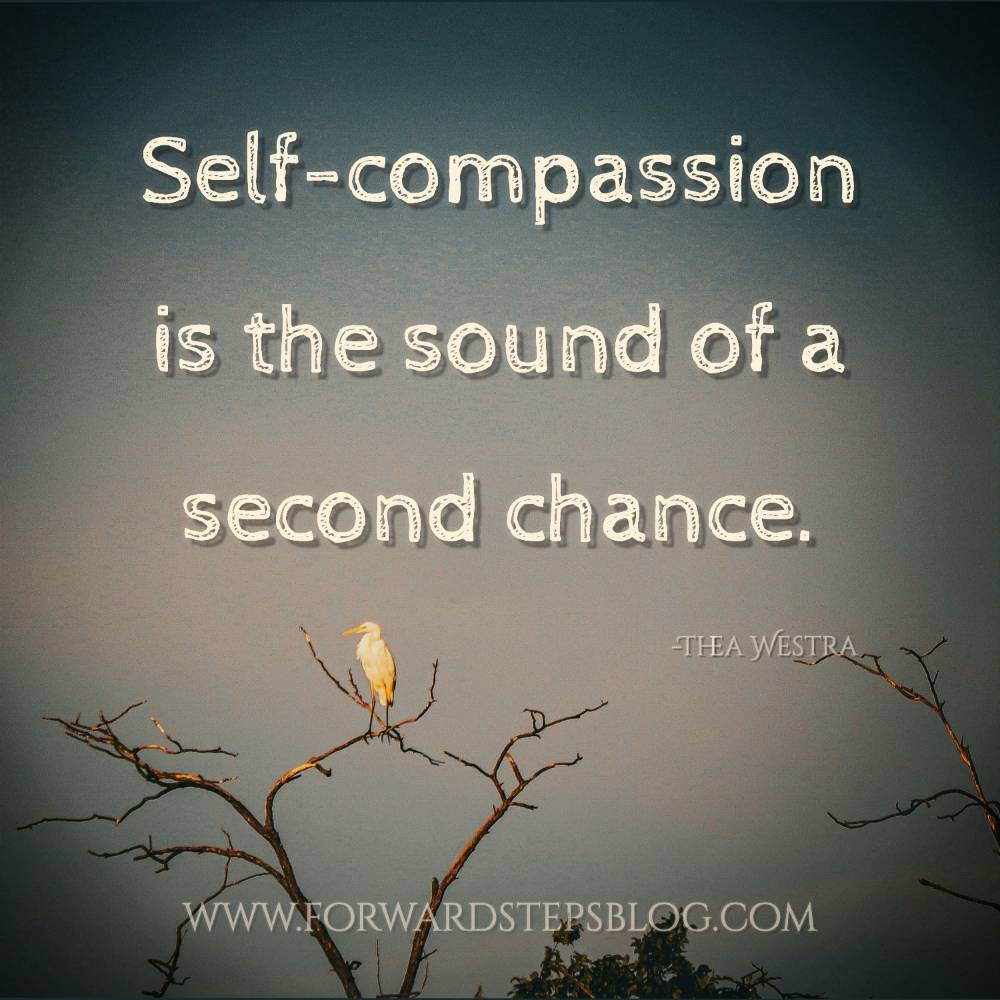Beating Yourself Up Never Works
Most of us learned early that being tough on ourselves is supposed to build character. Parents, teachers, bosses and even our inner critic sold us the idea that a hard kick in the backside is what makes you grow. Yet has it ever really worked? When you call yourself lazy or useless after missing a deadline, does it fire you up or does it drain your will to even try?
 Harsh self-criticism feels like discipline, however it’s closer to self-sabotage. Research from Dr Kristin Neff and others on self-compassion shows people who treat themselves with kindness are more motivated, resilient and successful. It is not softness that makes people crumble, it is cruelty. Imagine telling a friend who failed an exam, “You’re pathetic and will never get anywhere”. That is the sort of poison we often pour into our own ears. It leaves scars, not strength.
Harsh self-criticism feels like discipline, however it’s closer to self-sabotage. Research from Dr Kristin Neff and others on self-compassion shows people who treat themselves with kindness are more motivated, resilient and successful. It is not softness that makes people crumble, it is cruelty. Imagine telling a friend who failed an exam, “You’re pathetic and will never get anywhere”. That is the sort of poison we often pour into our own ears. It leaves scars, not strength.
The belief that self-hatred is a fuel for growth is one of the most destructive myths in modern culture. Growth comes from support, patience and steady effort, not from a whip at your back. If berating yourself worked, you would already be perfect.
What Self-Compassion Really Means
Self-compassion is not indulgence. It is not an excuse for poor behaviour or a free pass to avoid responsibility. It is the choice to treat yourself with the same understanding and respect that you would give to someone you care about.
It includes three things, mindfulness, kindness to self and recognising common humanity. Mindfulness stops you from spiralling in exaggerated stories about how terrible you are. Kindness is choosing words and actions that soothe instead of stab. Recognising common humanity reminds you that everyone fails and struggles and you are not a freak or exception.
The critic shuts doors, compassion hands you the keys. Share on XThis is a skill, not a personality trait. Anyone can learn it. When you make a mistake, instead of snapping “I’m hopeless”, you say “That was hard, yet mistakes happen. What’s the next best step?” It is not lofty theory, it is a habit you build every day.
The Biology of Self-Kindness
Your brain reacts differently when you attack yourself compared with when you support yourself. Self-criticism triggers the amygdala, which is responsible for fight, flight or freeze.

Self-compassion, on the other hand, activates the parasympathetic nervous system. Oxytocin and endorphins are released. Your body relaxes. You feel safe. From that calm state, you can see the bigger picture and take constructive action.
This is not fluffy talk about “good vibes”. It is neuroscience. When you give yourself a break, you literally make your brain more capable of learning and adapting. When you berate yourself, you impair those functions. No athlete performs at their best while being screamed at by an internal tyrant.
The Productivity Myth
Some fear that if they let themselves off the hook, they will slacken and lose ambition. They think harshness is the only way to keep moving. Yet studies repeatedly show self-compassionate people are more persistent, not less. They recover faster from setbacks, they keep trying after failure and they approach goals with more energy.
Failure is heavy, self-compassion is the hand that lifts it. Share on XSelf-criticism creates avoidance. If every mistake earns a beating, you avoid risk and avoid effort. Why try something new if failure means self-torture? Self-compassion creates courage. When you know you will be gentle with yourself regardless of the outcome, you are free to experiment, to stretch, to fail and to learn. That is how progress happens.

The Australian Tendency to Self-Rib
Australians are famous for taking the mickey out of themselves. Tall poppy syndrome and self-deprecating humour are part of the culture. A bit of ribbing keeps us grounded. The line between healthy humour and destructive self-talk is thin. Constantly calling yourself an idiot or saying you are useless is not modesty, it is training your brain to believe you are worthless.
Encouragement is cheaper than punishment and pays higher dividends. Share on XSelf-compassion does not mean giving up humour or pretending you are flawless. It means knowing when the joke is no longer funny because it cuts too deep. It is fine to laugh at spilling coffee on your shirt, it’s not fine to mutter that you always ruin everything. One keeps you human, the other keeps you stuck.
Practical Ways to Practise Self-Compassion
It is easy to say, “Be kind to yourself”. It is harder to put into practice, especially if you have spent decades sharpening your inner critic. Here are a few practical steps.
Notice your inner voice. Pay attention to the tone you use when you speak to yourself. Would you use that tone with a mate? If not, adjust it.

Build a self-kindness script. Have a few lines ready for tough moments, “This is difficult, yet I will handle it” or “Mistakes are part of learning”. Use them as mental bandages.
Practice small comforts. Take a walk, breathe slowly, make a cup of tea. These simple acts signal to your body that you are safe. They are not luxuries, they are survival tactics.
Talk to yourself as you would to a child. You would not scream at a child learning to ride a bike. You would cheer them on. You deserve that same approach.
The soft voice of kindness outshouts the roar of criticism. Share on XOver time, these small shifts create a new habit. Self-compassion becomes the default instead of self-criticism.
The Courage to Drop the Whip
Some people cling to self-criticism because it feels noble, like they are holding themselves to high standards.

Letting go of the whip requires courage. It means you admit you are human, that you fail, that you stumble. It means you stop pretending you can drive yourself by fear and start choosing to grow through care.
That is not softness, it is bravery.
Life already throws enough punches. Adding your own just means you are hitting yourself while down. Choosing self-compassion is refusing to join the side of what hurts you.
What Happens When You Switch
People who adopt self-compassion report remarkable changes. Anxiety lessens, confidence rises, relationships improve. They find they have more energy because they are not drained by constant inner battles. They set healthier boundaries because they respect themselves. They bounce back from mistakes faster and with more clarity.
Every time you choose self-kindness, you practise freedom. Share on XThe shift is not instant. It comes from repeated practice. Over time, your entire mental landscape changes. Instead of being a hostile environment where every slip is punished, your inner world becomes a place where you can rest, regroup and relaunch. That inner safety is the foundation for outer success.
Making It Your New Default
If you are used to harsh self-criticism, self-compassion will feel foreign at first. You might even think it sounds silly. That is fine. Start anyway. You do not need to believe it instantly, you just need to practise it.

Every time you treat yourself kindly, you are building neural pathways. You are training your brain to default to support instead of sabotage.
That is how real transformation happens. Not through sudden epiphanies… through repeated ordinary acts of care.
A Final Word
Self-compassion is not about lowering standards or ignoring responsibility. It is about creating the conditions for growth. Harsh self-criticism burns energy, blocks learning and erodes resilience. Self-compassion restores energy, supports learning and builds resilience.
Talk to yourself as if you matter, because you do. Share on XLife is already demanding enough. You can either be your own ally or your own enemy. Choosing to be your ally is not weakness, it is wisdom.
The world does not need more people walking around wounded by their own words. It needs people who can rise again after failure, who can laugh at their mistakes without labelling themselves as hopeless, who can keep going with courage and kindness.
So next time you catch that harsh inner voice, pause. Swap it for something kinder. Treat yourself like someone worth supporting, because you are.
PLUS check out these free gifts from friends… CHECK out the following great resources as well…Forward Steps Personal Development »







